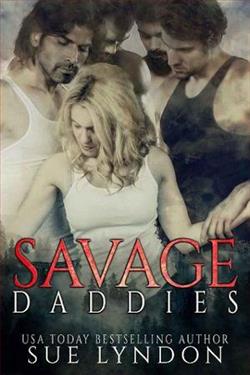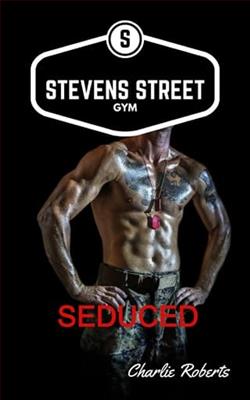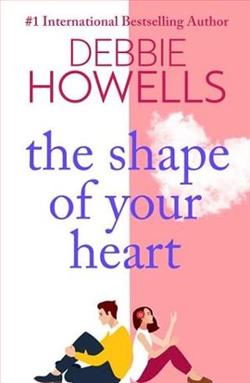Page 4 of A Song to Drown Rivers
She just nodded, her gaze still on the river. It was not the reaction a normal child would have to pain. Then again, perhaps there could be no normal children raised in an age of war. As I dabbed at her bloodied palms, I felt a vicious stab of hatred toward the Wu. There had been no end to the turmoil in our kingdom ever since the Wu armies captured Kuaiji, and now there grew a generation of parentless children who were more familiar with pain than peace.
I expected the stranger to leave, but he merely stood to the side and watched me while I worked. It was a foreign feeling. Few ever paid much attention to me when my face was covered, and fewer still looked at me as if they could see me—not the smooth, pretty surface of things, but the thorns that grew underneath.
“You are not from around here, are you?” I asked without glancing up at him.
“How can you tell?” From his mild tone, it was difficult to judge whether or not he was genuinely asking.
To be safe, I responded anyway. “Your… air. Your mannerisms. It is not like the men around here.”
“No? And what kind of air do I possess?”
Now I did glance at him, at the sword in its carved sheath and the rich-colored robes wrapped tight around his waist, the elegant topknot his raven-black hair was arranged in, the tassels and jade swinging from his belt. “A dignified one,” I said at last. “The air of somebody important. Perhaps you are a nobleman. Or a traveling scholar. Or a leader in the military—you fight so well.” I wanted him to correct me, to confirm my guesses, but he just smiled slightly and said nothing else.
When Wuyuan’s wounds had been treated to the best of my abilities, he placed a pouch in her hands. I only needed to hear its faint jangle to know it was filled with coins.
Wuyuan stared, wide-eyed, her shock mirroring mine. “What—”
“Buy yourself some food and new clothes,” he said. “But make sure you do not spend all of it. Leave half the coins to purchase unripe plums at the lowest price you can get—I suggest the market two miles south from here, right down the river. Store them in a safe place, away from the sun. You will find that the prices for plums will rise dramatically three days later. When that time comes, sell the plums again at triple the price. Do you understand?”
Wuyuan nodded, even though she was now openly gaping, as if unsure whether the young man before her was a mortal or god. I was no longer sure myself. “Yes.”
“Good.”
How do you know?I wanted to ask him. How could he possibly predict what the prices would be three days from now? Andhe sounded so certain of it. But he had smoothed his robes and started back down the riverbank, away from us.
Without thinking, I ran after him.
“Wait, before you go—” I scrambled to pick up the best bolt of silk I could find in my basket, the one I had finished washing, and passed it to him. “Please, take this.”
He slowed, and cocked his head. “For what?”
I pointed downward at the hem of his robes. There was a tiny tear from where he must’ve caught it on some rock earlier in his fight with the Wu man. “To patch it up. Or make a new set of robes. And if not,” I said louder, when he looked about to protest, “then take it as a token of my thanks. I know it is not the most equal of trades: a bolt of silk in exchange for a life. But perhaps you can better remember me this way.”
“I do not need the silk to remember you,” he said, so quiet I barely heard him, but accepted my offering with a small dip of his head. “If fate wills it, may we meet again.”
I gazed after his retreating figure, the sun beating down on the knife-straight line of his shoulders, until his silhouette was but a smudge in the distant horizon. Yet as soon as he was out of sight, my chest seized, and I gasped, fingers grabbing uselessly at my robe collar. Just like that, the pain had returned.
I made no mention of my close brush with death, nor my strange encounter with the young man, when I returned home. I knew my parents would worry themselves to pieces over the first part, and even more so over the second. Besides, in the old, familiar light of my room, with its rammed-earth walls and low, thatched roof, everything that had transpired now took on a dreamlike air. Would they even believe me if I spoke of a beautiful, mysteriousstranger who could win a duel against an armed man without moving a finger, who could predict the rise and fall of the market in the future, who stood and spoke like someone raised in a palace? I barely believed myself, and I had been there. I had seen him.
So I collected the washed silk, cleaned the tables, and prepared dinner. Our supply of beans was low, and our supply of rice lower; when I took the amount needed for one full pot of porridge, my ladle scraped the jar bottom. I ignored the pinch of worry in my belly. Tomorrow, I would clean twice the amount of silk I did today, so we could sell more at the market. That would be enough. It needed to be. And when that ran out—
I snipped the thought before it could grow. I had learned to think of time in days, the stretch between two meals, from sunup to sundown. Sometimes it felt like that was all my life was, all it ever could be: the repetition of tasks necessary for survival until I grew older and my time expired. Yet strange as it was—whenever I tried to imagine myself as an old woman, I couldn’t. It was like trying to see the tail end of a river; the image only grew blurry and faded to black.
“Do you need help with that?”
My father’s face in the doorway, beaten brown by the sun. He was not an old man, I didn’t think, but his hair was already graying, and his frame was stooped from the weight of thick tree trunks and giant axes.
“No, Father,” I said. He always offered to help, and he always said it sincerely enough, yet somehow, he never ended up helping. Perhaps because it would be worth more trouble teaching him than simply doing the task myself; I doubted he even knew how to boil water on his own. But he was still better than some of the other fathers, who beat their children for not cooking fast enough, or simply to release their own rage on someone who couldn’t hit back.
“Very well, then.” I listened to him shuffling across the room, the low heave and exhale as he settled into his chair, and not long after, his soft, rumbling snores. And then there was the boiling water, the green beans floating to the surface, their insides splitting open. I stirred as I had been taught by my mother, and her mother before her.
After dinner, I sat beside the window, knees hugged to my chest, and stared out. Although the huts themselves were not much to look at, little more than an ugly reminder of the violence that had touched our part of the kingdom, all the trees and wildflowers and mountains were painted in saturated shades of blue and green. Lush grass grew over the places corpses had been left to rot, back when there weren’t enough villagers remaining to help bury the bodies. Butterflies fluttered from one branch to another, where blood had once stained the leaves.
Nature had healed faster than we had.
A warm breeze drifted in and sighed against my skin. At times like these, the dusky air held a breathless quality, as if it were waiting for darkness to descend. I was waiting too—but for what, I did not know yet.
CHAPTER TWO















